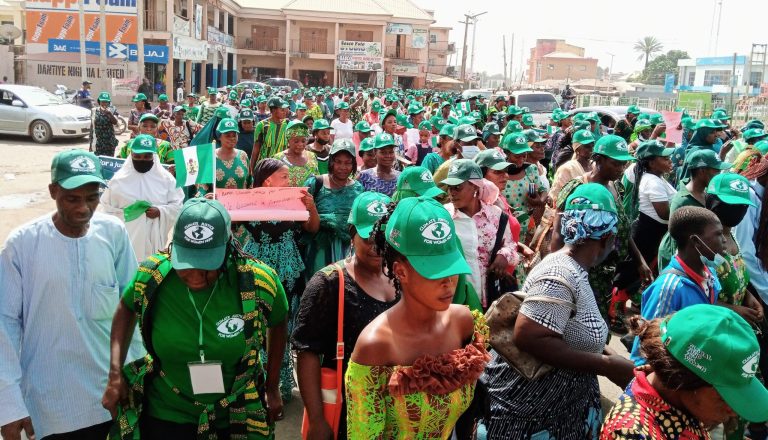A gender advocate civil society group, Women in Politics Forum (WIPF), has decried the absence of “even one” female lawmaker in the Abia House of Assembly.
The group, in a statement on Wednesday in Abuja, wondered why the entire state didn’t see one woman that was fit to be elected into the House.
It called for inclusivity to boost the protection of all interests in the society.
The statement, which was signed by Mrs Ebere Ijendu, its President, said that women in the state were marginalised in politics and decision making.
“That is why the forum initiated a call for inclusivity and a campaign for the enactment of gender responsive legislation in the state,” she said.
According to her, female representation will give a voice to women to be engaged in decision making.
“It will also promote unity in the state, regardless of party affiliation.
“Over the years, women in politics forum has been vocal on the need for increased women representation in political offices.
“This continues to be a problem with the current constitution of women representation in governance which is merely six per cent, while the reality is that women in Nigeria constitute 49 per cent of the population.
“Sadly, in both the previous and current dispensation, Abia ranks among the 14 states without a female member of the state assembly.
“The state also does not have any female member in the National Assembly either.
“Even in the state cabinet, there are only two women serving as commissioners,” she fumed.
Ifendu added that the group had consulted with members of the state Assembly, directors at the National Institute for Legislative and Democratic Studies, (NILDS), and strategic women groups and Civil Society actors in Abia.
“Based on the consultation, a draft gender representation bill has been presented by the WIPF to the Speaker of the Abia state Assembly, Mr Emeka Emeruwa.
“He has gracefully accepted the bill with a promise to present same to the larger House.”
WIPF is a non-partisan gender advocate group which fights against the marginalisation of women in politics.
By Justina Auta


